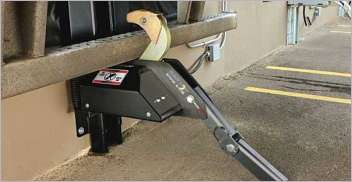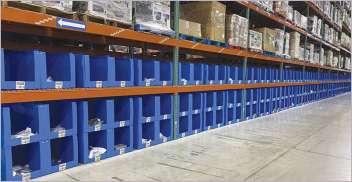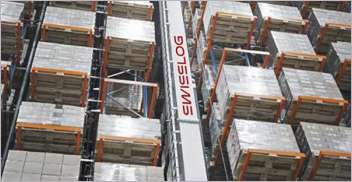Metal pallets made from steel or aluminum might not be as common as plastic pallets, but in some applications, they have real advantages, especially for companies that take a long-term approach to their assets.
“When you’re looking at a steel pallet, you’re talking about customers who have a heavy payload and are looking for something that is rackable, fireproof and sanitary,” says Don Pulver, vice president and general manager for Worthington Steelpac (http://www.worthingtonsteelpac.com), a manufacturer of steel pallets.
In recent years, steel pallets have been adopted by the Smithsonian to store paper products, since water can’t be absorbed from steel as from wood. And while volumes have been light, steel pallets have also been adopted by some companies in the battery, tire and even food companies.
Likewise, aluminum pallets have been adopted by some air freight shippers. While aluminum pallets are more expensive than steel, they are lighter than comparable wood and plastic pallets, which makes them a natural choice for air freight shipments. As an added bonus, aluminum won’t leave any rust marks in a plane. They also work well with conveyor systems.
However, both steel and aluminum pallets are expensive: While cost comparisons will vary based on specific situations, a metal pallet will cost about 1-1/2 times more than a plastic pallet, says Ken Hunt, sales manager for LM Containers (http://www.lmcontainers.com), manufacturer of the Rhino pallet, a light duty aluminum pallet for in-house storage as well as aluminum container pallets designed to handle loads of 4,000 to 6,000 pounds.
For that reason, the biggest selling point for steel or aluminum pallets is durability. “We have products that have been in the field since 1972 and are still going strong,” says Hunt. “These are products that have been tried and tested to last a long time.”
Metal pallets will take a (lift truck) beating and keep on ticking: Worthington Steelpac has run simulation studies that showed just a 5% damage rate over a five year period of typical use. More importantly, the simulations predicted virtually no damage to the top deck boards which are most likely to cause damage to product. It will come as no surprise that the military is a significant user of metal pallets.
“It’s all about return on investment,” says Hunt. “If you’re an end user, like the government, that can control your assets and take a long-term view, metal pallets are the most durable.”
Want to learn more about pallets? Join pallet experts as they put context behind the findings of Modern’s 2010 Pallet Usage and Trending Study Webcast on October 28, 2010 at 2 pm ET.








